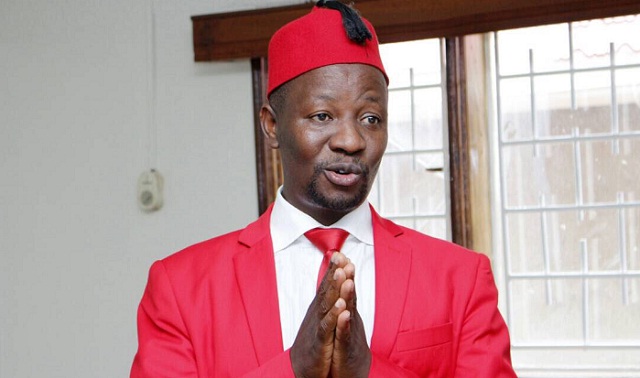
Kampala, Uganda | THE INDEPENDENT | The scandal about Uganda Telecom Limited-UTL could be a ploy to privatize the company, the Forum for Democratic Change-FDC party spokesperson, Ibrahim Ssemujju Nganda has noted.
Last month, the Aringa South MP, Alioni Yorke Odria tabled shocking documents indicating that government’s efforts to carry out accountability audits in UTL have been blocked by the Administrator whom he described as an illegal operator.
Odria told parliament that UTL is indebted by over Shillings 534 billion. According to a 2017 parliamentary committee report, UTL borrowed money to a tune of 381.9 billion Shillings from different banks without an investment plan.
The company also owes Uganda Revenue Authority-URA Shillings 89.2 billion in tax arrears and National Social Security Fund Shillings 18.3 billion. The company’s total assets declined from Shillings 309.28 billion in 2009 to Shillings 204.31 billion in 2014.
Nganda blames the UTL liabilities in government. According to Semujju, the chaos in UTL could be intentional by government officials who want to take over the company after stealing from it.
Semujju says that the problems of UTL started after government entered a partnership with UCOM telecom, a Libyan owned firm that took over management from 2000.
Government privatized 49% of its shares and retained the majority 51% shares. However, due to failure by government to invest more in the company, UCOM was able to surpass and get 61% shares.
UTL’s performance was moderate with a Shillings 87 billion net worth in 2010. However, by 2014, UTL net worth was 163 billion shillings (163 billion shillings in debt). The Situation has since worsened and now stands at Shillings 534 billion.
UTL’s existence was also affected when UCOM ran short of capital investment partly due to the United Nations sanctions on Libya. UCOM was brought as an alternative to revamp UTL, the oldest telecom company in the country. This was based on the idea that privatization of government parastatals could improve their management.
Semujju argues that parastatals can be managed under government contrary to common belief that government can’t run business. He gives an example of MTN owned by the South African government that has thrived.
MTN has a net worth of over 15 billion USD and by 2016, had about 10 million subscribers.
Semujju further said that the UTL saga, coming after the Bank of Uganda scandal is indicative of a government talented at scandal and making things go bad. He says that as a party, they always knew there are more scandals coming and that the only solution is to eliminate those in government because they cannot undo the problems they have created.
*****
URN
 The Independent Uganda: You get the Truth we Pay the Price
The Independent Uganda: You get the Truth we Pay the Price





